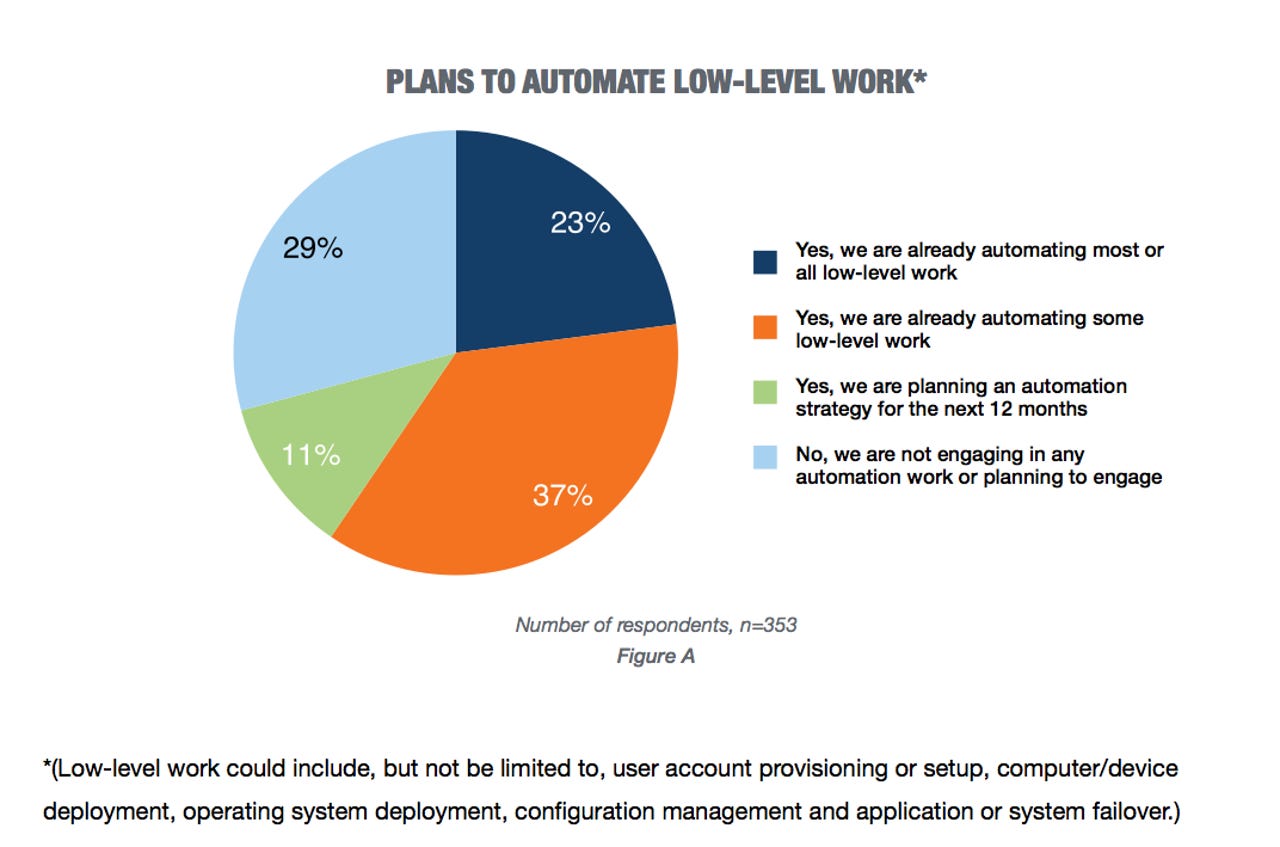Research: Automation crucial for 60 percent of organizations

New inventions often make people's jobs easier and faster, but many also threaten occupations by replacing human workers. As technology booms, the need for human intervention lessens. For instance, messaging and calendar programs have replaced many receptionists and secretaries, while table-mounted touchscreens at restaurants mean that fewer servers are needed.
New opportunities sometimes arise as a result of new technology. The personal computer, for example, obviously created many additional jobs to support the industry.
Automation is one such area that has tremendous potential for benefits as well as job loss. In the IT realm, automation involves examples such as scripts, scheduled tasks, password reset portals, operating system deployment, configuration management and elaborate monitoring capabilities. By automating these tasks, companies can free up system admins, developers and other IT staff to do other jobs.
But it also can lead to job loss, particularly jobs relating to basic operations. To find out the impact that automation is having on IT, Tech Pro Research conducted a survey and talked to 353 respondents to discover the extent of automation, where automation isn't appropriate, and how and where automation has impacted jobs at their organization.
Download Tech Pro Research's full report, The Future of IT Jobs: How to beat the machines.
Topics covered in the Tech Pro Research's report, The Future of IT Jobs: How to beat the machines, include:
- Reasons against automation
- Jobs at risk due to automation
- Company training for new roles
- How jobs are evolving within organizations
- Who is using automation
- Who plans to use automation
- Departments using automating
- Systems or objects being automated
Who is using automation

The survey found that 60 percent of respondents are already automating some, most or all of their low-level IT work and another 11 percent have plans to do so within a year. That means that nearly three-quarters of those surveyed work for companies that recognize the vast possibilities that automation holds.
The survey also found that larger companies are more likely to automate, and this is due in part because of larger budgets, more predictable environments and more streamlined processes.
Another 29 percent are not utilizing the concept, and the survey digs into why that is the case.
Reasons for automating work
Nearly three-quarters (73%) of respondents said their companies are automating basic task handling, while 70% are using automation to maintain a consistent environment, and 67% are automating to offload work and free up staff.
Reasons for not using automation
Some of the most common reasons for those who are not automating work include a lack of applicability to the work environment, and also a worry about complexity. Too few staff resources, and a lack of support from management were also top concerns.
The report showed that IT workers know that there are challenges ahead, and that it's important to learn how best to respond to and meet the challenge. Some respondents are adding to their job skills through either self-study or college course work, while others are working toward careers in automation.
Find out more about the changes ahead in IT, and download the full report, The Future of IT Jobs: How to beat the machines.
Tech Pro Research is the premium content sister site of ZDNet and TechRepublic.